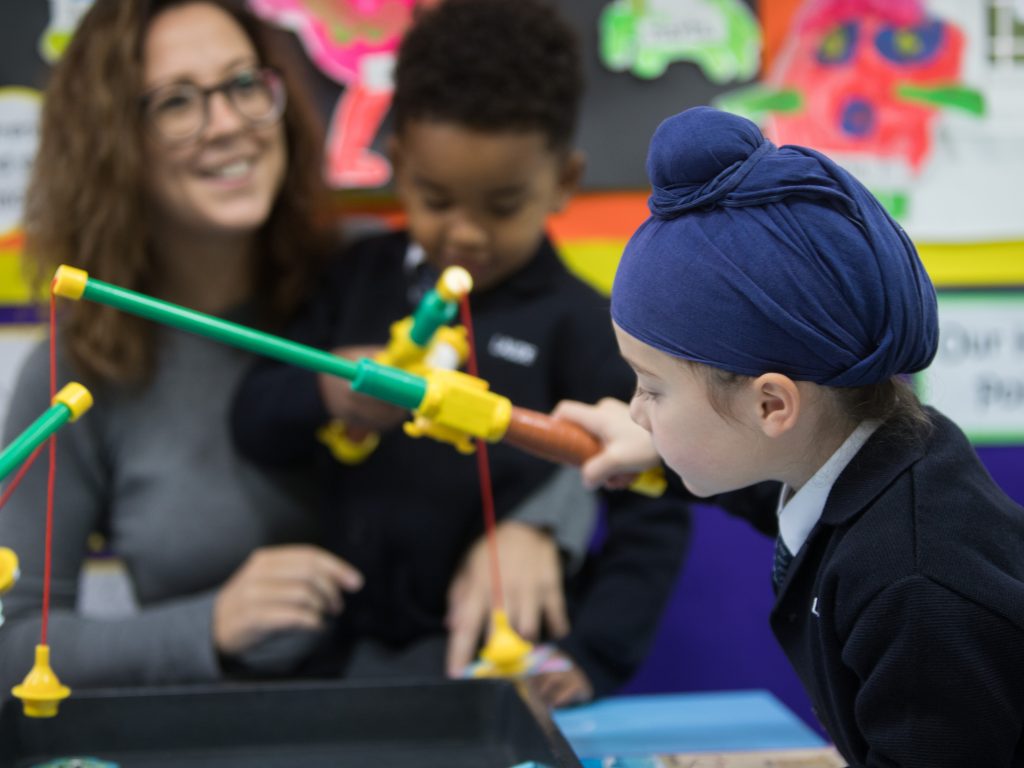EARLY YEARS
The New Foundation Stage Curriculum is divided into seven sections and taught at The British School of Malaga through a mixture of carefully planned provision and activities based on a topic-centred approach, both inside and outdoors. The curriculum focuses on the importance of play and the social and emotional development of children.
Key areas are fundamental to building a child’s ability to learn and thrive, supporting development in all other areas. The three key areas are:
- Personal, Social and Emotional Development
- Communication and Language
- Physical Development
Specific areas include essential skills and knowledge for children to participate successfully in society. The four specific areas are:
- Literacy
- Mathematics
- Understanding the World
- Expressive Art and Design
We make the following activities and experiences available to the children:
PERSONAL, SOCIAL AND EMOTIONAL DEVELOPMENT
Children will learn to be self-confident, show independence and self-respect. They gain a sense of what is right and wrong and how to behave appropriately in different situations. They will learn to share and take turns, how to be sensitive to others’ needs and be encouraged to work co-operatively in pairs, groups and as a whole class. This underpins the whole curriculum.
COMMUNICATION AND LANGUAGE
This involves providing children with opportunities to experience a rich language environment, which will help to develop their confidence and skills in listening and expressing themselves. Our main aim is to develop and broaden children’s understanding and language through careful interaction, for example by modelling appropriate vocabulary and dialogue.
PHYSICAL DEVELOPMENT
Pupils learn to move confidently, controlling their body and handling large and small play equipment. They have access to wheeled toys (e.g. bikes, scooters) and learn how to manoeuvre them and their bodies with better control and co-ordination, showing an awareness of space and people. The children start to develop their gross motor skills (large movements) and their fine motor skills (beading, writing, making puzzles, etc.) by handling tools with safety and basic control.
LITERACY
Children are taught to link sounds and letters together and begin to read and write. They are given access to a wide range of reading materials (books, poems and other written materials) to ignite their interest and love of literacy at this early age.
MATHEMATICS
Pupils develop an understanding of mathematics through stories, songs, games and imaginative play. They count, sort objects and learn to recognise numbers. They use mathematical vocabulary to describe concepts such as shapes, patterns, size, capacity and measures.
UNDERSTANDING THE WORLD
Pupils explore and find out about the world around them. They are encouraged to talk about their lives, family members and events in their lives. They learn to investigate places, living things, materials and objects using their senses. Children have access to information technology, for example computers, electronic toys and smart board technology. They learn about, celebrate and respect other cultures and their beliefs.
EXPRESSIVE ARTS AND DESIGN
Creative development has many links with other areas of the curriculum and much of the teaching is conducted on the basis of creative activities such as collage, printing or painting. This also involves music, role play and imaginative play. We display children’s work to encourage a sense of pride and achievement, and to celebrate their creativity.







